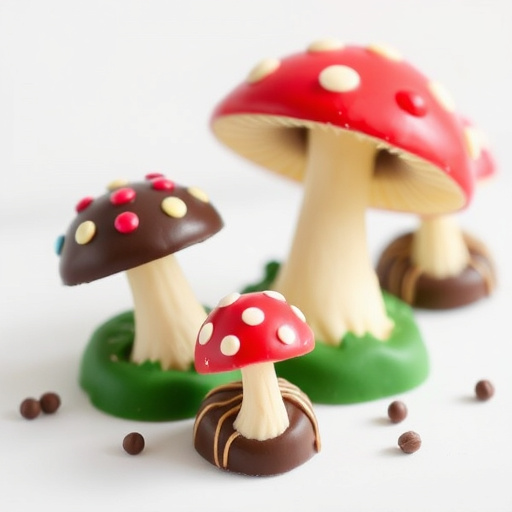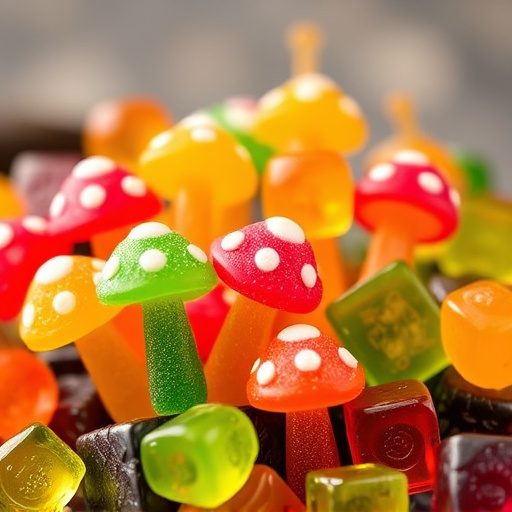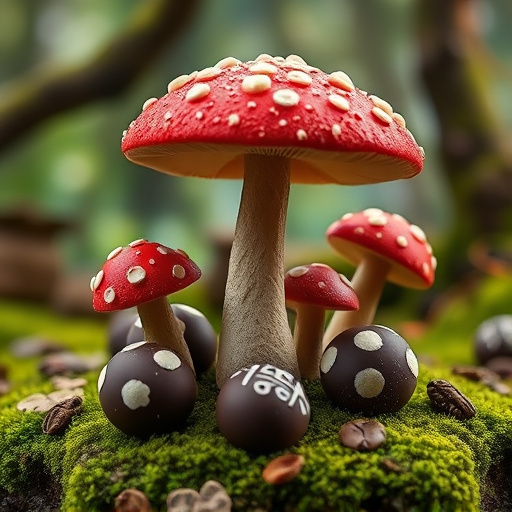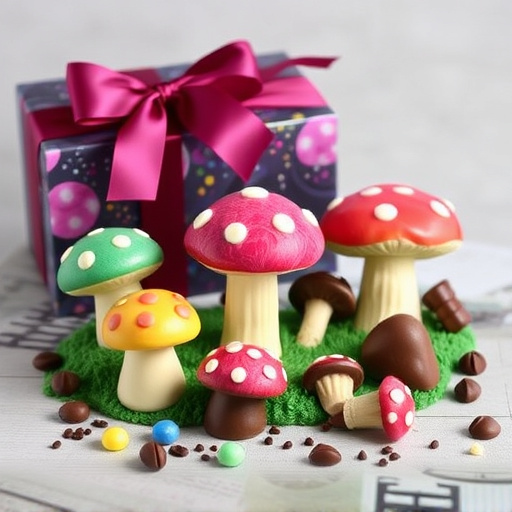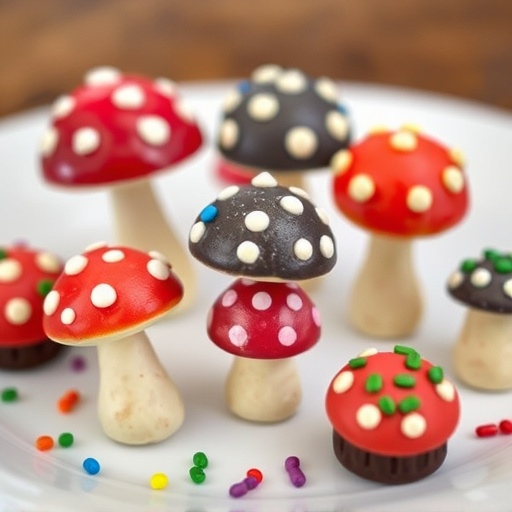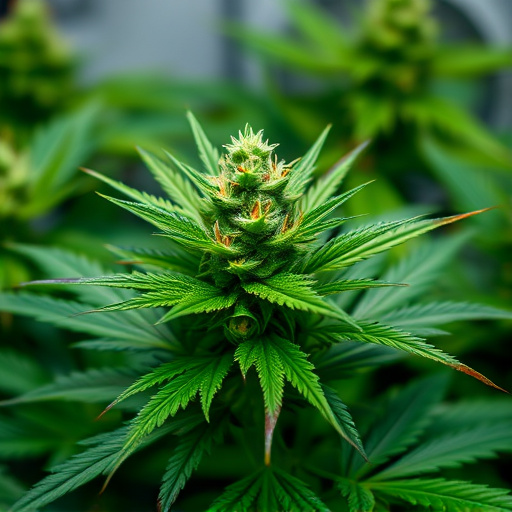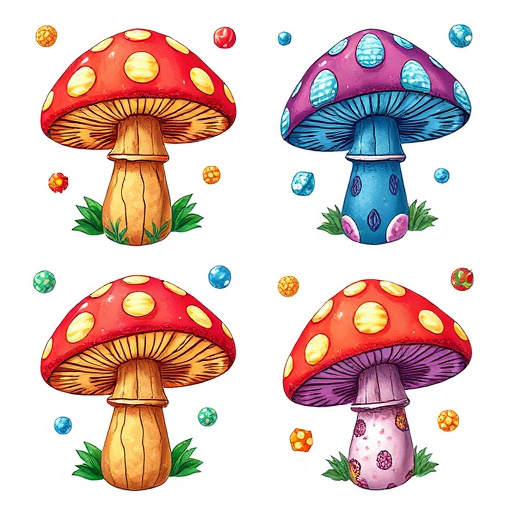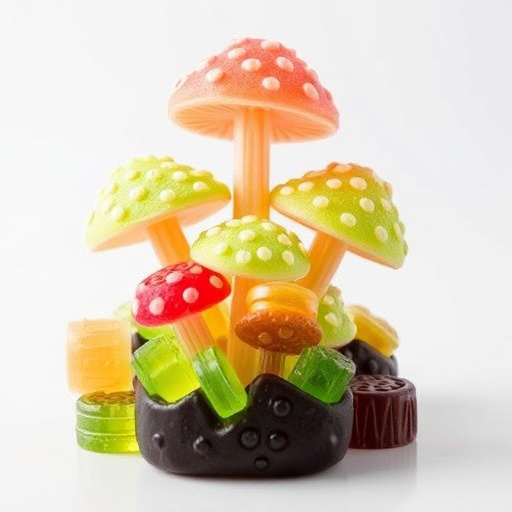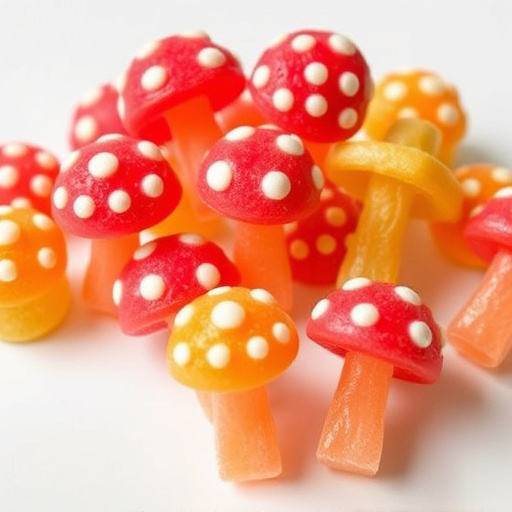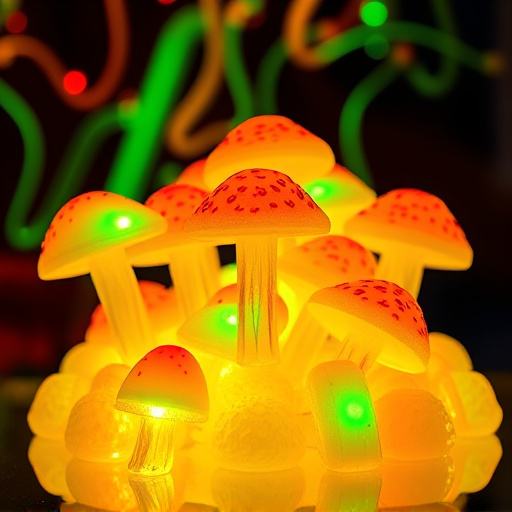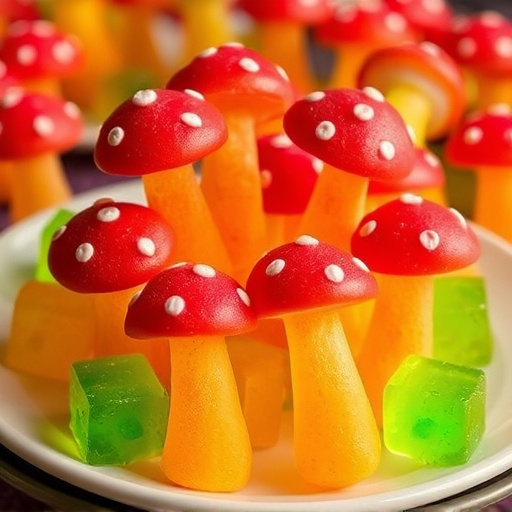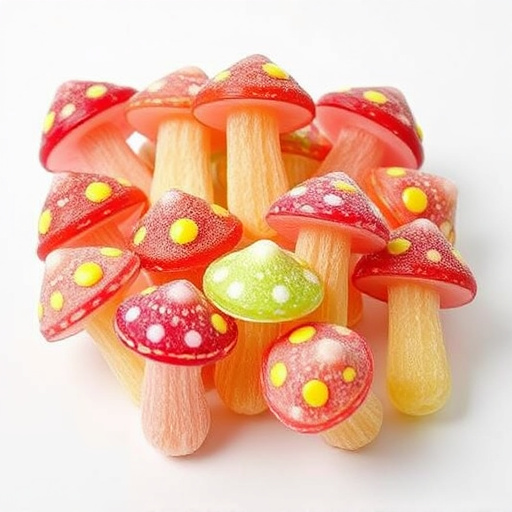Psilocybin, a compound found in Magic Mushroom Gummies, has garnered attention for its potential to enhance mental health. Beyond its psychedelic effects, psilocybin interacts with the gut-brain axis, influencing neurotransmitters and gut microbiota. This interaction offers promising avenues for natural remedies in psychiatry, leveraging the power of Magic Mushroom Gummies to promote synchronicity between the gut and brain, thereby regulating mood, cognition, and immune function.
Unleash the potential of your mind with a deeper dive into the world of Magic Mushroom Gummies and their profound impact on the gut-brain connection. Psilocybin, naturally found in specific mushrooms, has captivated researchers for its ability to interact with serotonin receptors in the brain. Beyond its psychedelic effects, psilocybin influences the gut-brain axis, offering therapeutic benefits ranging from stress reduction and improved mood to enhanced creativity. This article explores how magic mushroom gummies, a convenient and discreet ingestion method, harness this power while providing essential guidance on selection and safe use.
- Understanding Psilocybin and its Effects on the Gut-Brain Connection
- – A brief overview of psilocybin and its natural occurrence in certain mushrooms
- – The science behind how psilocybin interacts with the brain, particularly focusing on serotonin receptors
Understanding Psilocybin and its Effects on the Gut-Brain Connection

Psilocybin, a natural compound found in certain types of magic mushrooms, has gained significant attention for its potential therapeutic effects on mental health and well-being. Beyond its psychedelic properties, psilocybin interacts with our bodies in fascinating ways, particularly regarding the gut-brain connection. Research suggests that psilocybin can modulate neurotransmitters in the brain, leading to altered states of consciousness. Intriguingly, it also influences the gut microbiota—the billions of microorganisms residing in our digestive tracts.
The gut-brain axis, a bi-directional communication network between the gastrointestinal tract and the central nervous system, is where psilocybin exerts its influence. Magic mushroom gummies, infused with psilocybin, can enhance this connection by promoting synchronicity and interaction between the gut and brain. This relationship has profound implications for mental health, as the gut microbiome plays a crucial role in regulating mood, cognition, and even immune function. Understanding how magic mushroom gummies interact with the gut-brain axis offers a promising avenue for exploring natural remedies in psychiatry and neuroscience.
– A brief overview of psilocybin and its natural occurrence in certain mushrooms
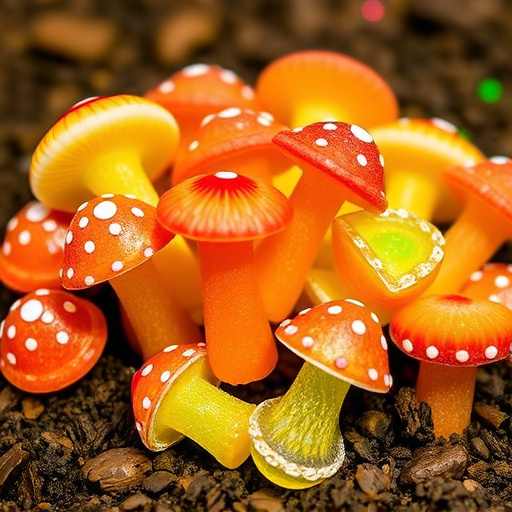
Psilocybin, a powerful psychedelic compound, is naturally found in certain species of mushrooms commonly known as magic mushrooms or psychotropic fungi. These mushrooms have been used for their mind-altering properties by indigenous cultures for centuries. Psilocybin works by binding to specific receptors in the brain, leading to altered perceptions and heightened consciousness. This compound has gained significant attention in recent years for its potential therapeutic benefits, particularly in addressing mental health conditions such as depression, anxiety, and addiction.
The gut-brain connection is a fascinating aspect of neuroscience that explains the role of the gastrointestinal tract in regulating mood and cognitive function. Magic mushroom gummies, edible forms of psilocybin, offer a unique way to tap into this connection. When ingested, psilocybin breaks down into psilocin, which readily crosses the blood-brain barrier, initiating its neuroactive effects. This process not only affects the brain but can also influence gut bacteria, highlighting the intricate relationship between mental and physical well-being.
– The science behind how psilocybin interacts with the brain, particularly focusing on serotonin receptors
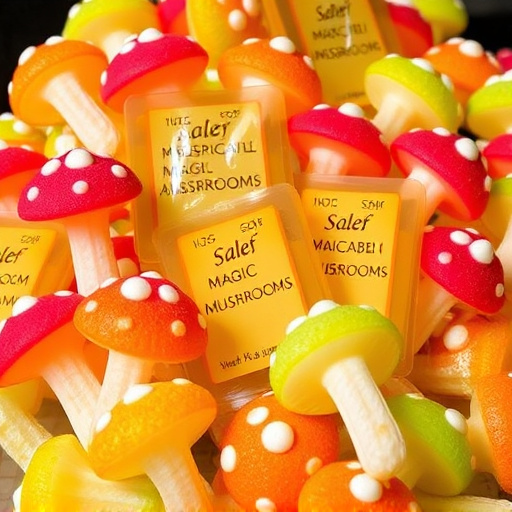
Psilocybin, the active compound found in magic mushroom gummies, is a powerful psychotropic substance that has gained significant interest from both scientific and recreational perspectives. Its ability to alter consciousness and induce mystical experiences is well-documented. Scientifically, psilocybin interacts with the brain’s serotonin receptors, specifically targeting the 5-HT2A receptors. Serotonin, often referred to as the ‘feel-good’ neurotransmitter, plays a crucial role in mood regulation, cognitive functions, and even appetite control. When psilocybin binds to these receptors, it disrupts normal serotonin signalling, leading to altered perceptions and the characteristic ‘trip’ associated with magic mushroom consumption.
The gut-brain connection is another fascinating aspect worth exploring. The gastrointestinal tract contains a complex neural network known as the enteric nervous system (ENS), which communicates bidirectionally with the brain. Magic mushroom gummies can influence this intricate relationship, affecting not only brain chemistry but also gastrointestinal health and function. Research suggests that psilocybin’s impact on serotonin receptors in both the brain and gut may contribute to its therapeutic potential, offering insights into managing conditions like anxiety, depression, and even gastrointestinal disorders.
In conclusion, magic mushroom gummies offer a unique and increasingly popular way to explore the therapeutic potential of psilocybin. By understanding how psilocybin interacts with our brain’s serotonin receptors, we can appreciate its effects on the gut-brain connection. This knowledge empowers us to make informed decisions when considering these innovative products for personal well-being and mental health exploration.
